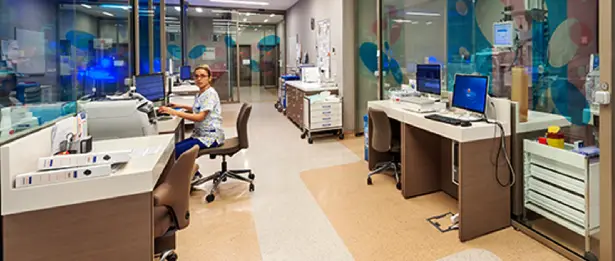Risky Baby Monitoring

The follow-up of babies at high risk, such as premature birth, multiple pregnancy, maternal diabetes, large babies, babies who swallowed meconium in the womb, and brain and other organ damage resulting from difficult birth, is different from healthy babies. These babies are at risk for diseases such as respiratory problems, chronic lung disease, jaundice, feeding difficulties, intracranial bleeding and premature retinopathy (eye disease seen in premature babies). Follow-up of risky babies is done by a risky baby specialist.
Risky Baby Monitoring at Liv Hospital
At Liv Hospital Risky Baby Monitoring Clinic, the development of these babies is closely monitored with developmental tests, and problems detected early are provided with a much better solution by applying early physical therapy. In addition, multidisciplinary follow-up is carried out with departments such as Eye, Audiology and Speech Therapy in the follow-up of risky babies. Nutrition is also important for babies who are born prematurely or stay in the neonatal intensive care unit for a long time, so that they can reach the height and weight of their peers in the future. During this process, when necessary, special practices such as strengthening breast milk are carried out in line with the recommendations of dietitians and nutritionists.
What is Cocoon Strategy?
In order to protect babies, called the "cocoon strategy", people in contact with the baby (such as parents, siblings, caregivers and healthcare workers) are vaccinated against tetanus, adult type diphtheria and adult type acellular pertussis. In addition, by vaccinating all family members caring for the baby with flu vaccines, which we cannot administer to children under 6 months, the baby is protected from diseases that cause major endemics and pandemics. Premature babies, those with chronic lung disease or cardiological disease are at increased risk of serious lower respiratory tract disease caused by RSV (respiratory syncytial virus). For this reason, protective antibodies (synagis) are applied to these children between October and March.









